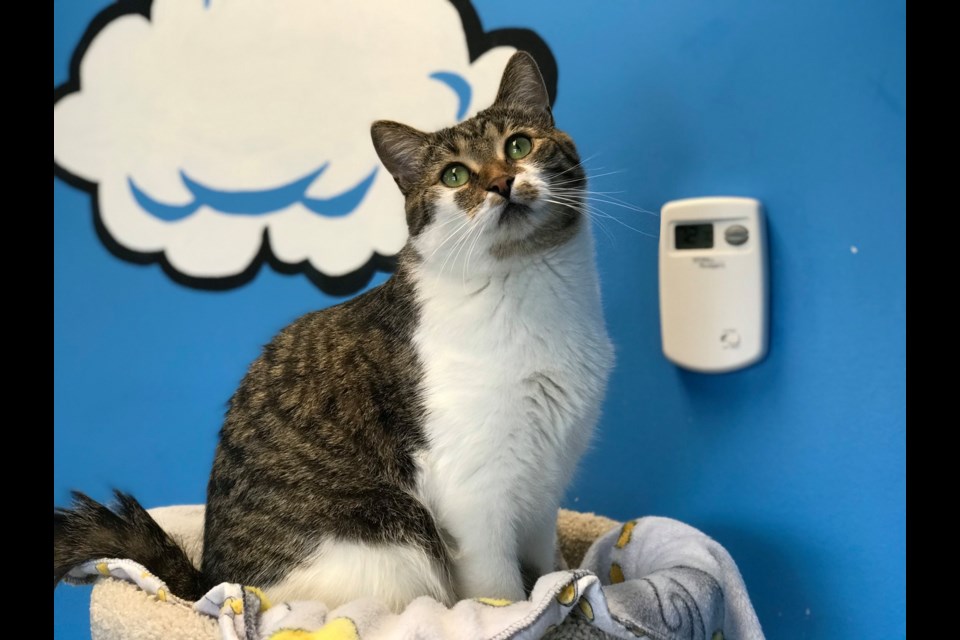“Jobs of the Future” is a series focusing on career paths, local job opportunities, programs, and tales of success that highlight North Bay's diverse job market.
---
There are many moving parts that help makes the North Bay and District Humane Society run on a day-to-day basis. Between the clinic, the adoption centre, the various programs, and the community outreach, there is a lot to be accountable for.
Jessica Kokol is an Administrative Assistant and one of the keys to the overall operation.
“I do a lot of the bookkeeping and paperwork. I answer the phones and the doors and so I’m generally the first face you’ll see when you do come to the Humane Society,” says Kokol.
The North Bay and District Humane Society (NBDHS) specializes in spay and neuter services, however, in an emergency, the doctor will see how they can best help the animal in need.
In recent years the clinic has pushed that message out to the community on having pets spayed or neutered for a number of reasons.
“I think it’s important to provide spay and neuter services because you have to reduce and try to control the animal population,” says Kokol.
“You’re getting so many animals yearly that will get euthanized due to overpopulation. Our shelter does not euthanize, but that is a big part of why getting your cat spayed and neutered is so important. It’s also a health preventative measure as male dogs can develop testicular cancer and female dogs can develop Pyometra (a bacterial infection that occurs because of hormonal changes in the female's reproductive tract).”
Kokol adds it also reduces bad behaviors such as scent marking and aggressiveness.
“It doesn’t eliminate those issues but can severely reduce them. Population control is huge, we have such a large stray population here and throughout northern Ontario in general.”
The NBDHS also does its best to help animals from other areas find their forever home.
“We’ve done dog rescues from Thunder Bay and Manitoba in the past and recently we’ve been in contact with a shelter in Kentucky,” says Kokol.
“They are unfortunately a kill shelter and so when space is limited, they do perform euthanasia on those animals and so every couple of weeks, we have been getting about six dogs from them to give them a shot at adoption.”
Kokol says it’s not unusual for shelters to work together to give animals more of a chance to get adopted.
“We work really closely with shelters everywhere and through connections with different Humane Societies and PCAs (societies for the Prevention of Cruelty to Animals), you make a lot of connections. Part of my role is reaching out to other shelters all the time for all kinds of things. Janet Bredin is the one who does a lot of that coordinating and networking for our shelter.”
Kokol is a recent graduate from Nipissing University with a degree in biology.
She says she was looking to further her education in veterinary medicine, but after starting at the shelter she became interested in the other side of the business, “Which led me to my current role; although it all starts with a love for animals.”
“If you’re going into veterinary medicine for private practice, 60 per cent of your job is focused on animals and 40 per cent is dealing with people. You have to be very socially conscious and know how to talk to people because you have to relay to the owners what their pets may or may not need. In the shelter, it’s mostly just doing what is best for that animal.”
Kokol says there are a lot of opportunities to pursue a career where you are working with animals and suggests people should volunteer at their local humane society or a clinic and base their decisions on that.
“If you find that you are more interested in the medical aspect of it, go look at programs that you can pursue and specialize in. While my job is in administration, I get to work with animals way more than a lot of other people in administration-type roles and so If you’re interested in working with animals, just volunteer where you can. There are so many jobs available in the animal world, and not all of it revolves around the medical side of things, so explore those options.”
She adds you can explore volunteering opportunities with the NBDHS.
“We also have amazing volunteers who walk our dogs. We could never have enough staff to do all that and those volunteers make a huge difference in the day-to-day operations of the shelter.
Aside from volunteering, Kokol says there are other ways the community has been able to give back to the shelter.
“Our fundraising team is really good at what they do, and our community is so generous about donating, not just monetary donations but food, blankets, and collars and leashes. Those little things that make a big difference when we don’t have to find a way to fit those things into the budget” says Kokol.
The NBDHS continues to evolve with the expansion of their adoption centre and plans to build an off-leash dog park on their site as well for their volunteers can spend time socializing with Humane Society dogs.
Kokol says, “We’re now trying to be more community-oriented, so pushing our spay and neuter clinic as an affordable option for the community. We’re putting a lot of effort into educational programs such as our ‘Paw Pals Summer Camp’ we have coming up, as well as our microchip days. Just having a better presence in the community and trying to improve the quality of life of animals in our area through education.”
If you have a story idea for “Jobs of the Future” send Matt an email at [email protected]



